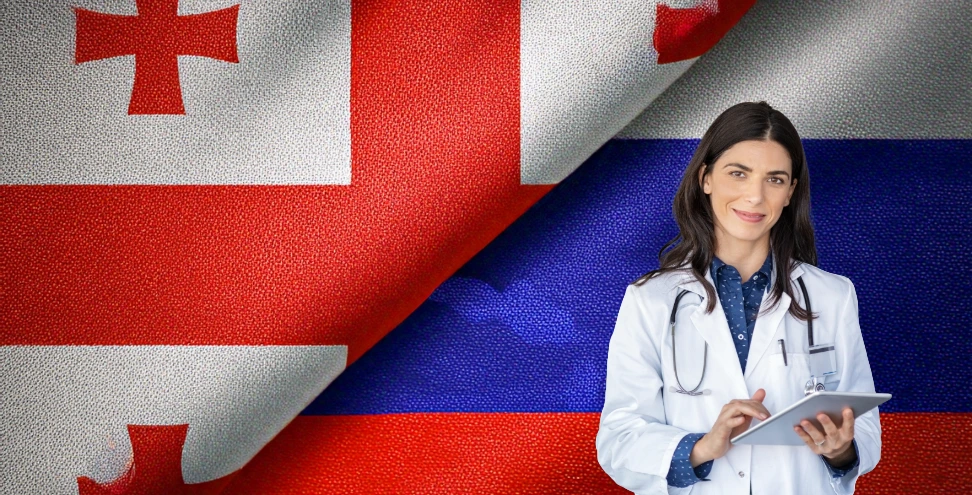Engineering at Higher School of Economics (HSE) Russia
Table of Contents
- Engineering at Higher School of Economics (HSE) Russia – Highlights
- Why Study Engineering at Higher School of Economics (HSE) Russia?
- Higher School of Economics (HSE) Engineering Rankings
- Higher School of Economics (HSE) Engineering Acceptance Rate
- Popular Engineering Courses at Higher School of Economics (HSE) Russia
- Admission Requirements to Engineering at Higher School of Economics (HSE) Russia
- Cost of Engineering at Higher School of Economics (HSE) Russia for Indian Students
- Scholarships at Higher School of Economics (HSE) Russia
- Job Prospects for Engineering at Russia
- FAQs – Engineering at Higher School of Economics (HSE) Russia
Engineering at Higher School of Economics (HSE) Russia – Highlights
Engineering at Higher School of Economics (HSE) in Russia offers an exceptional blend of theoretical knowledge and practical skills. Located in Moscow, a hub of innovation and technology, the program provides students with access to state-of-the-art facilities and a dynamic learning environment. The curriculum is designed to meet international standards, ensuring that graduates are well-prepared for the global engineering landscape.
The city of Moscow itself adds immense value to the HSE engineering experience. Known for its rich cultural heritage and vibrant urban lifestyle, Moscow offers students unique opportunities for professional growth and personal development. The city's extensive network of industries and research institutions allows HSE students to engage in valuable internships and collaborative projects.
Why Study Engineering at Higher School of Economics (HSE) Russia?
Studying engineering at HSE offers numerous advantages. The university is renowned for its strong academic programs and experienced faculty members who are leaders in their fields. Students benefit from a rigorous curriculum that emphasizes both theoretical foundations and practical applications. Additionally, HSE's strong industry connections provide students with ample opportunities for internships and job placements upon graduation.
- State-of-the-art facilities and laboratories.
- Internationally recognized degrees.
- Extensive industry connections for internships and jobs.
- Located in Moscow, a global technology hub.
Higher School of Economics (HSE) Engineering Rankings
| Ranking | Source |
|---|---|
| Top 200 | US News and World Report |
| Top 150 | QS Ranking |
| Top 100 | THE Ranking |
| Top 250 | ARWU Ranking |
Higher School of Economics (HSE) Engineering Acceptance Rate
- The acceptance rate for HSE's engineering programs is highly competitive.
- Approximately 20-25% of applicants are admitted annually.
Popular Engineering Courses at Higher School of Economics (HSE) Russia
- Bachelor’s Programs
- Mechanical Engineering: Focuses on the design, analysis, and manufacturing of mechanical systems.
- Electrical Engineering: Covers the study of electrical systems, electronics, and electromagnetism.
- Computer Science and Engineering: Combines computer science theories with engineering principles to develop software and hardware solutions.
- Master’s Programs
- Robotics and Automation: Specializes in the design and application of robots in various industries.
- Civil Engineering: Emphasizes the planning, design, and construction of infrastructure projects.
- Data Science and Engineering: Focuses on big data analytics, machine learning, and data-driven decision-making.
Admission Requirements to Engineering at Higher School of Economics (HSE) Russia
Admission to the engineering programs at HSE is competitive and requires a strong academic background. Prospective students must meet specific entry requirements and successfully pass the entrance exam.
- Higher School of Economics (HSE) Engineering entrance exam.
- Higher School of Economics (HSE) Engineering entry requirements.
Eligibility criteria vary depending on the program. For bachelor's programs, applicants typically need a high school diploma with strong grades in math and science subjects. For master's programs, a bachelor's degree in a relevant field is required along with work experience in some cases.
International students must also demonstrate proficiency in the English language, as many programs are taught in English. Additionally, a good score in standardized tests like the SAT or GRE may be required for certain programs.
- Completed application form.
- Official transcripts and diplomas.
- Proof of English proficiency (e.g., TOEFL, IELTS).
- Letters of recommendation.
- Personal statement or statement of purpose.
- Passport copy.
Proficiency tests such as TOEFL and IELTS are commonly required for international students to ensure they have the necessary English language skills to succeed in their studies. Minimum score requirements vary by program but generally range from 80-100 for TOEFL and 6.5-7.0 for IELTS.
- Apply for a student visa at the Russian consulate in your home country.
- Submit the required documents, including your acceptance letter from HSE.
- Attend a visa interview, if required.
- Receive your student visa and make travel arrangements to Russia.
Cost of Engineering at Higher School of Economics (HSE) Russia for Indian Students
Tuition fees for engineering programs at HSE vary depending on the program and level of study. On average, tuition fees range from $3,000 to $5,000 per year for bachelor's programs and $4,000 to $6,000 per year for master's programs.
The cost of living in Moscow is relatively high compared to other Russian cities. Students should budget around $500 to $800 per month for accommodation, food, transportation, and other living expenses.
| Expense | Estimated Cost (per month) |
|---|---|
| Accommodation | $200 - $400 |
| Food | $100 - $200 |
| Transportation | $30 - $50 |
| Miscellaneous | $100 - $150 |
Scholarships at Higher School of Economics (HSE) Russia
HSE offers a range of scholarships to support international students in their studies. These scholarships are awarded based on academic merit and financial need.
- HSE Gold Scholarship: Covers full tuition fees for outstanding students.
- HSE Silver Scholarship: Provides partial tuition fee waivers based on academic performance.
- Government Scholarship: Offered by the Russian government to international students with excellent academic records.
Job Prospects for Engineering in Russia
Graduates of HSE's engineering programs have excellent job prospects in Russia and internationally. The demand for skilled engineers is high, and graduates can find employment in various industries, including technology, manufacturing, and infrastructure.
| Job Title | Average Salary (per year) |
|---|---|
| Mechanical Engineer | $50,000 - $70,000 |
| Electrical Engineer | $55,000 - $75,000 |
| Software Engineer | $60,000 - $90,000 |
| Civil Engineer | $45,000 - $65,000 |
FAQs – Engineering at Higher School of Economics (HSE) Russia
- Can I work while studying engineering at HSE?
Yes, international students can work part-time while studying, provided they obtain the necessary work permits. Many students find internships or part-time jobs related to their field of study. - What are the advantages of studying engineering at HSE?
HSE offers a globally recognized degree, state-of-the-art facilities, and strong industry connections, providing students with ample opportunities for professional growth. - What is the average salary for engineering graduates from HSE?
The average salary varies by specialization but ranges from $50,000 to $90,000 per year, depending on the industry and location. - What is the duration of the engineering programs at HSE?
Bachelor's programs typically take 4 years to complete, while master's programs usually take 2 years. - What exams are required for admission to HSE's engineering programs?
Prospective students must pass the HSE entrance exam and may also need to submit scores from standardized tests like the SAT or GRE. - What are the popular engineering courses at HSE?
Popular courses include Mechanical Engineering, Electrical Engineering, Computer Science and Engineering, Robotics and Automation, Civil Engineering, and Data Science and Engineering.



